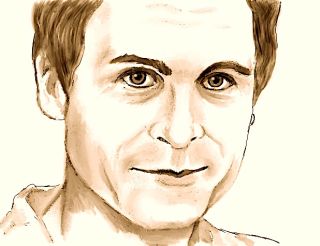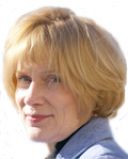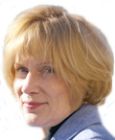Serial Killers
Ted Bundy’s Back Story
After decades of silence, Bundy’s cousin describes her close encounters.
Posted July 22, 2024 Reviewed by Michelle Quirk
Key points
- Aspects of Ted Bundy’s early years have long been a mystery.
- Edna Cowell Martin, his cousin, fills in a few blanks.
- Martin’s story confirms Bundy’s envy, anger, and skill at duplicity.

True crime fans with a thirst for tales about Ted Bundy ensure that anyone who offers something new will get an audience. This year, we hear from a blood relative, Edna Cowell Martin, who spent most of her life keeping her story under wraps. Yet, it’s Bundy’s early background about which we’re most in the dark, so a narrative from someone from his boyhood could offer useful information. Dark Tide: Growing Up With Ted Bundy is Martin’s new memoir, published half a century after “Ted” first entered police lists as a suspect in some abductions.
Bundy’s mother, Louise Cowell, was single when she gave birth, a scandal in 1946. Initially, she raised her son in her father’s home in Philadelphia until his brother, her uncle John Cowell, invited her and Ted to live with his family in Tacoma, WA. Ted was four. Edna was born the following year. Although her older brother John Jr. knew Bundy much better, Martin relates several anecdotes that confirm our impressions about the infamous serial killer.
Insecurity and Envy of the Upper Class
We know from Bundy himself that a sense of insecurity and an envy of the upper class motivated the anger that helped to fuel his impulse to rape and kill college girls. Martin confirms this with her description of Bundy’s desire to attach himself to her family, who were financially and socially advantaged. Her parents both had college degrees. John Cowell was a renowned concert pianist who took his family around the world and landed university employment. The couple knew others with wealth and status. Martin was happy to escort Bundy into this world, unaware that he fumed over his own lack, exacerbated when Louise married Johnnie Bundy, a cook.
Martin thought Bundy idolized her father. When he brought his upper-class college girlfriend to meet the Cowells, he seemed to want this girl to think he was part of this family. Yet, as much as Bundy admired Uncle John, he actually had another role model.
Dr. Al Carlisle, a psychologist for the Utah State Prison, interviewed Bundy extensively after he was charged with an attempted abduction. Violent Mind is his 1976 psychological evaluation for the court (reviewed here). Carlisle talked to many people who knew Bundy but apparently not the Cowells. (Martin, who thought the arrest was mistaken, doesn’t mention him.) Bundy himself told Carlisle about his relationship with John Jr. “My cousin saw me as a spoiled brat,” Bundy said. “He was bigger and stronger and beat me in wrestling… I envied John when he said he was going to school in Paris.” One day, they discussed their respective futures. John bragged about his expansive aspirations and supposedly told Ted he wouldn’t achieve much because he was illegitimate. Ted denied this, but John showed him the birth certificate, a jarring and humiliating experience. Carlisle writes that “Cousin John’s open plans for wealth and greatness in comparison to Ted’s poverty and insignificance was a major issue.”
Carlisle gets some facts wrong (e.g., that John Cowell was Louise’s brother), but for details about Bundy’s early psychological development, Carlisle's report is a useful source of information. He notes how Bundy compared himself to others on wealth, status, strength, and intelligence, blaming his own family’s deficiency as his greatest hindrance. He looked to his great aunt and uncle as role models but told Carlisle his childhood dream had been to be adopted by Roy Rogers. “My life was boring, and the life of Roy Rogers was exciting.”
Wanting to Be Somebody
Edna Martin remembers Louise often assuring her son that he was special and “full of potential.” Martin sensed that Bundy took his mother’s doting to heart: “He wouldn’t settle for a small life. Ted Bundy was going to be somebody.” It makes sense that a kid who sees by comparison what his own family lacks would drive himself to attain significance. He explained to Martin his interest in politics and crime prevention during his college years as wanting “to make a difference.”
As Martin grew closer to Bundy during her college years, she witnessed startling evidence of his need for control. He avoided drugs but once yielded to pressure to smoke dope. “Once he got stoned,” she says, “Ted became wild,” including dancing on a table. As he sobered up, he seemed furious. “He didn’t like relinquishing his sense of control.” He also despised being humiliated. She saw him once get “over-the-top enraged” over a seemingly minor incident.
Then the memoir grows dark. On Martin's campus, some girls disappeared. She describes how frightening it was to envision someone stalking, abducting, and killing girls like her. Even after she learned that a man named Ted who drove the same type of car as her cousin was a suspect in two abductions on the same day, she never thought it was her Ted. She’d once even witnessed him slow-dancing with her roommate with an aggressive expression on his face and still failed to see his possible connection—not even after he was arrested in Utah. To her, he was a grown version of the kid she’d played with on the Puget Sound. She believed he cared about women.
As family, she thought she could best judge his potential for violence. Only later did she realize that those closest to a killer are the hardest to convince. “It chills me, how effectively Ted masked himself from us,” she writes. But during his visit to her while out on bail, everything changed. Edna saw his pride in being named in news headlines. On a street corner, he turned round and round in a crowd, with his arms in the air, saying repeatedly, “I’m Ted Bundy.” It's a stark image, especially when she tries to silence him. She realized then that she didn’t know him at all.
After Bundy’s conviction for murders in Florida, he remained mum on others for which he was the chief suspect. Martin wrote him letters to urge him to confess. The book contains his letters back to her. The distance between these former childhood chums is loud and clear.
Martin’s memoir enriches a story we know and gives us a college girl’s unfiltered experience while Bundy lurked nearby. It adds a unique perspective to the current literature on Bundy.
References
Carlisle, A. (2017). Violent Mind: The 1976 Psychological Assessment of Ted Bundy. Encino, CA: Genius Book Publishing.
Martin, E. C. (2024). Dark Tide: Growing Up With Ted Bundy. Permuted Press.




